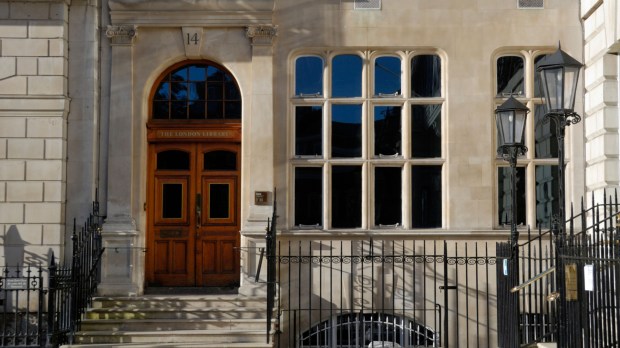At the National Trust’s annual general meeting last week, the voting was much more unusual than the public will have learnt from media reports. In most resolutions, the numbers voting exceeded 100,000. In past years, the figures have been lower than 40,000. The reason for this high turnout was the controversies of the past 18 months. Motions about the erosion of curatorial expertise and the ill treatment of Trust volunteers would have won easily had not the chairman exercised the right to use the discretionary proxy votes which the Trust’s curious governance permits. Without these, the rebel resolutions would have been more than 15,000 votes ahead. In achieving these results, the member organisation, Restore Trust, was important because it managed, via its website, to air the wide range of anxieties about current NT management which many members feel. Three of the six candidates it endorsed were also elected to the NT Council. Woke candidates did not fare well. In their speeches, the acting chairman, Orna Turner, and the director-general, Hilary McGrady, did make a vague but welcome concession by saying that tendentious interpretations of history would not be forced upon visitors and that the Trust should ‘avoid generalisations’; but both managed to refer to the notorious slavery and ‘colonialism’ report without mentioning what it had been about and where it went wrong. ‘I love this country,’ declared Ms McGrady, sounding a bit like Sir Keir Starmer trying to reclimb the ‘red wall’. This year, a lot of people disgusted by the report and other denigrations of former owners and existing buildings left the Trust in protest. If they rejoined now and were active, they could help restore it to what it should be.
The modern managements of public bodies and charities such as the National Trust are expert users of euphemistic terms. One is ‘the ability to reach out to wider audiences’ which, being interpreted, means ‘middle-aged, white males need not apply’. Another is ‘reflecting the communities they serve’. Trust volunteers always strike me as reflecting extraordinarily closely the Trust members they serve, being mainly white, middle-class and retired. But what the phrase really means is reflecting the sort of people whom they do not usually serve.
In Oxford a week ago, the last of the first Roger Scruton memorial lectures took place. It was delivered by Jonathan Sumption, whose subject was, simply, ‘Democracy’. Its survival, he said, was by no means assured. After it, I interviewed him on stage. The memory of Sir Roger, the great conservative thinker, was suitably honoured by the venue, the Sheldonian. And the fact that his ideas are of the moment was confirmed by the numbers: 700 people, mostly undergraduates, got in and others had to be turned away. The Roger Scruton Legacy Foundation, which organised everything, is an impressive collection of highly motivated young intellectuals. The series had the official seal of approval by Chris Patten, the Chancellor of Oxford, who gave the vote of thanks. This was all very heartening, and I was glad that Lord Patten made a point of emphasising the importance of freedom of thought and speech at his university. But it was interesting that he felt the need to do so: such things did not even need saying at great British universities in the late 20th century. One of Roger’s best achievements was to help the ‘flying’ universities that met covertly in communist eastern Europe in the 1980s. I remember him describing the ardour with which students sucked in the air of intellectual freedom. I sense a comparable hunger in Oxford today, as the threat to freedom grows.
Given Lord Sumption’s warning, we should be aware that the Chinese Communist party is developing its own version of democracy. As with all ‘Xi Jinping thought’, the leader emphasises the importance of harmony and ‘the common values of humanity’, as against the West’s ‘highly confrontational political discourse’. An article in the latest global weekly edition of China Daily by Marsela Musabelliu explains that China has ‘consultative democracy’: ‘Democracy should be judged by how people’s wishes are being fulfilled by the government’, rather than by a ‘fixed format’ (by which I think she means free choice in a ballot box). The author is director of the Albanian Institute for Globalisation Studies and has written about the joys of China’s Belt and Road initiative in Albania. I wonder who is paying. In her view, Chinese democracy involves ‘sincere cooperation to build state power at all levels’. Spend time at a Chinese university, she urges, and ‘be challenged by the myriad of ideas and perspectives’.
Meanwhile, Cambridge University and Jesus College (now widely known as ‘Xisus College’ because of its China Centre’s close relations with Beijing) continue to try to extirpate the alleged horror of Tobias Rustat, the benefactor of both, who in the late 17th century had some links with the slave trade. The group of Jesus alumni who are trying to prevent the college removing Grinling Gibbons’s bust of Rustat from the chapel wrote to the university authorities some time back. They did so because, a year ago this week, the university declared on its website that Rustat ‘was a major investor in a 17th-century slave trading company’ and ‘Rustat, as a courtier to Charles II, derived great wealth from the Royal African Company’. Having done considerable research and produced a document on the subject, the alumni believe neither statement to be true. The statements are still up, however, so the alumni have written again. They want to know what evidence was relied on when these statements were first published. The university will not say, so the alumni are taking the matter to the vice-chancellor, Stephen Toope. It is a reasonable inquiry. If it is not the case that the money Rustat gave to Cambridge came from slavery, then there is no factual basis for the entire carry-on against him.
Got something to add? Join the discussion and comment below.
Get 10 issues for just $10
Subscribe to The Spectator Australia today for the next 10 magazine issues, plus full online access, for just $10.
You might disagree with half of it, but you’ll enjoy reading all of it. Try your first month for free, then just $2 a week for the remainder of your first year.















Comments
Don't miss out
Join the conversation with other Spectator Australia readers. Subscribe to leave a comment.
SUBSCRIBEAlready a subscriber? Log in